How did German Jews experience the First World War? One of the most important sources is the German-Jewish press, i.e. newspapers and journals written in German and published by Jews for a pre-dominantly Jewish readership, with a thematic focus on issues of Jewish interest. The periodicals mirror the communal life as well as the central debates prevalent in the German-Jewish communities of the past.
The German-Jewish community – counting some 550,000 individuals or slightly less than one per cent of the German population during 1914-1918 – boast a rich media landscape: Over 1000 periodicals appeared in Germany from the beginning of the Jewish emancipation in the mid-18th century until November 1938, when the Nazis suspended all Jewish papers (information from Professor Michael Nagel, Bremen). Several hundred are accessible online through the digital collections Compact Memory and DigiBaeck. New titles are constantly added.
Despite substantial research into the history of German Jewry during the First World War, and although historians have extensively used the Jewish press as a major source, this press has rarely been the object of inquiry. My project explores how the Jewish press presented the war and its impact on Jewish life, using selected periodicals.
The medium of the Jewish press is particularly appropriate for the study of the vital concerns of German Jewry. This is because it commented on all important issues in the fields of politics, social life, and culture. The main Jewish groupings – Liberals, Orthodox, and Zionists – published their own newspapers and journals. They documented the initial euphoria and bright outlook of the Jewish future: In August 1914 all periodicals, irrespective of their ideological outlook, patriotically avowed themselves to the support of the war.
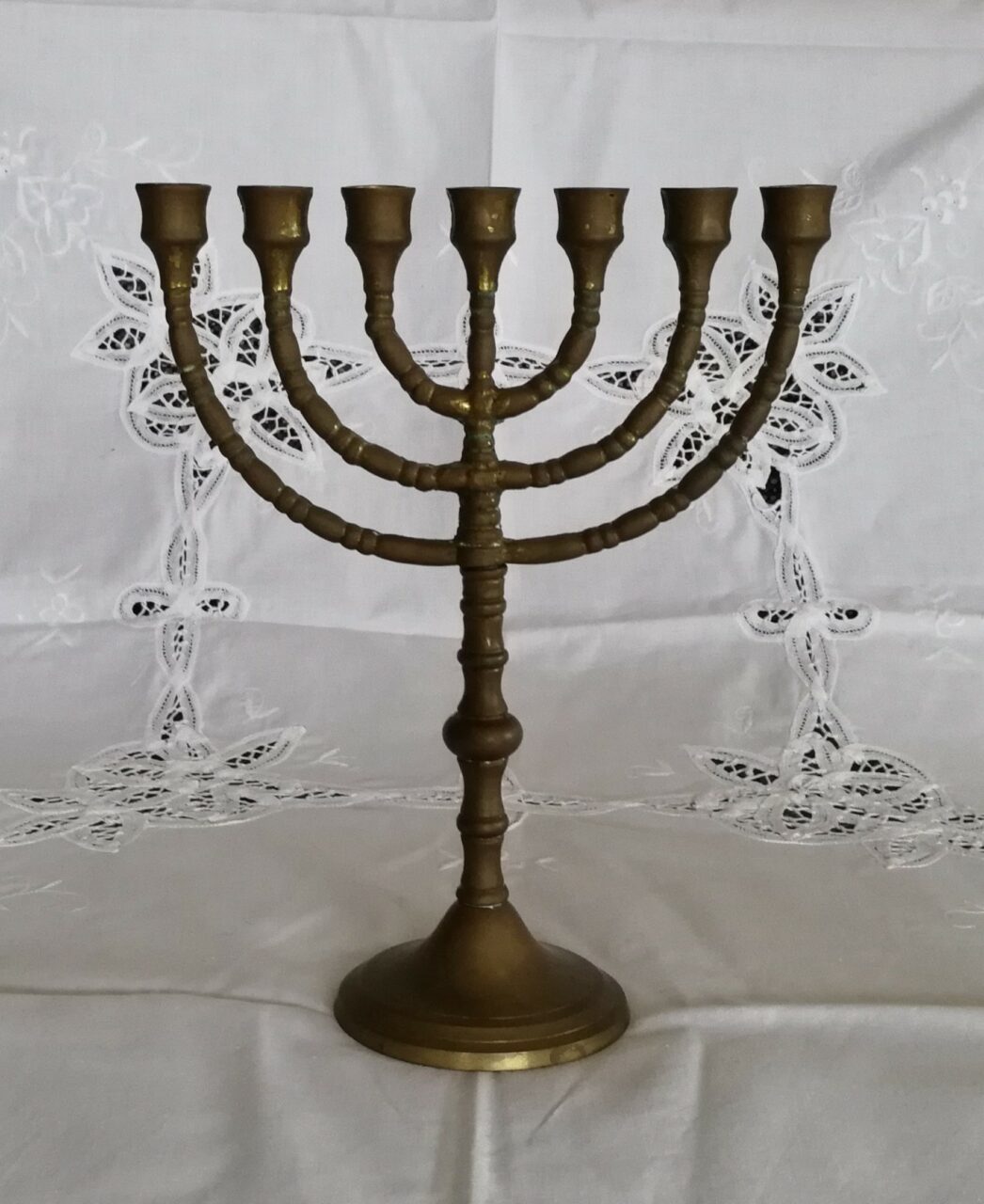
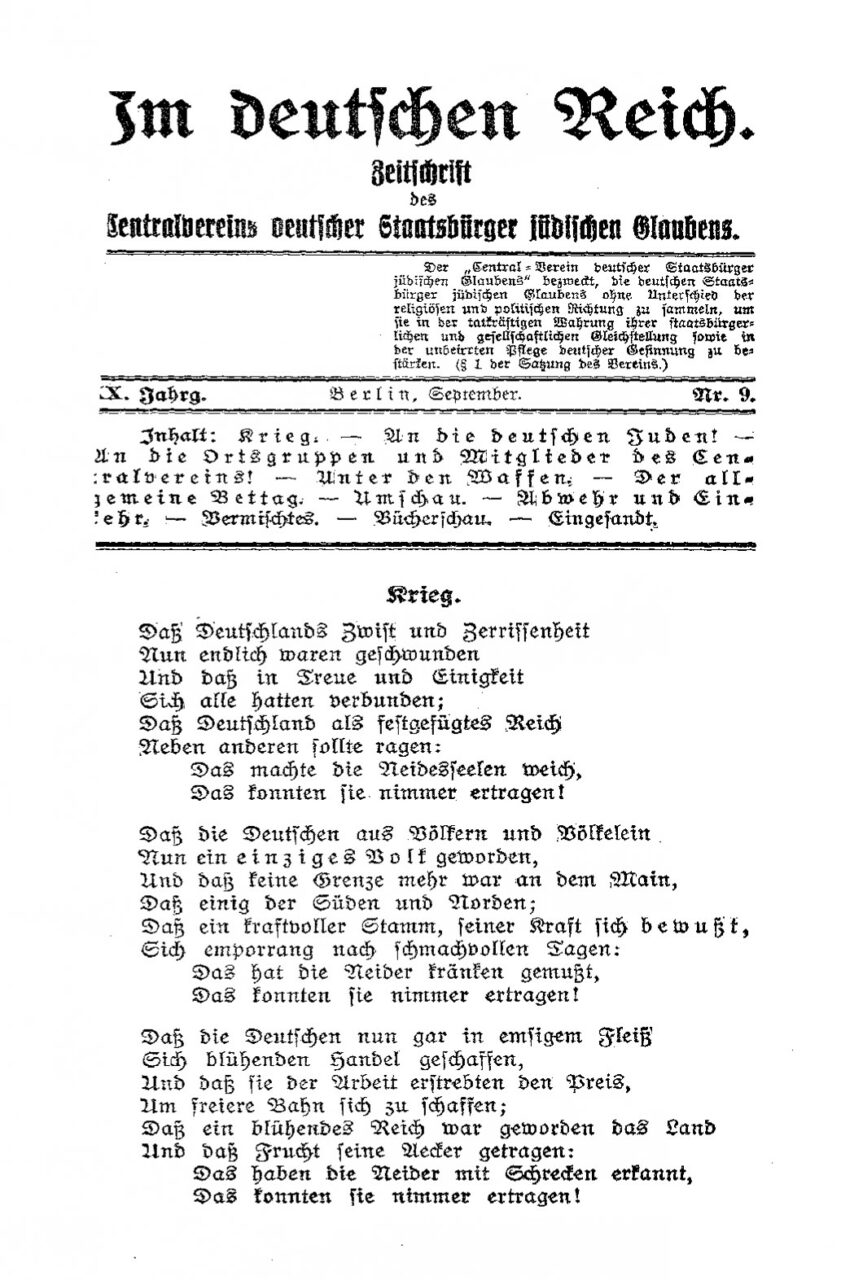
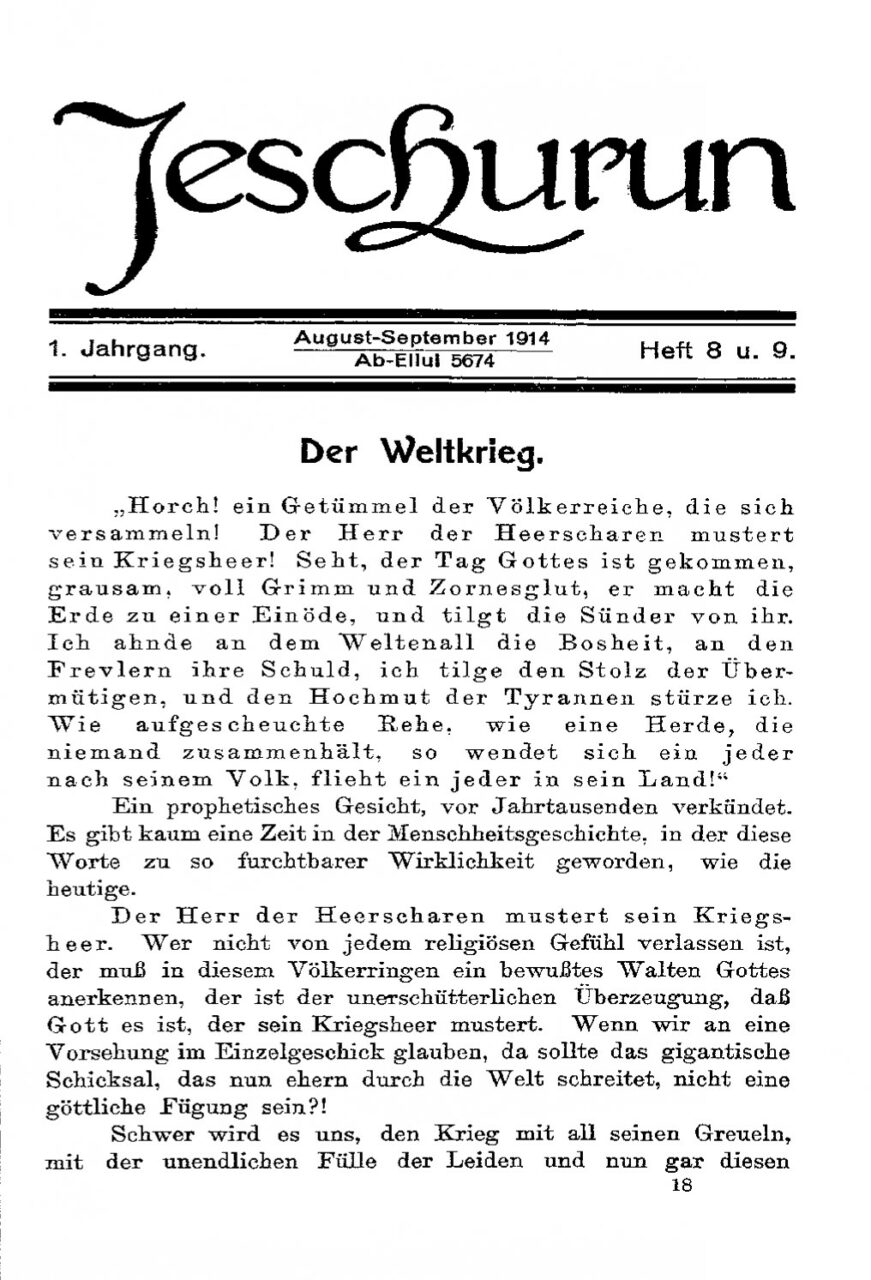
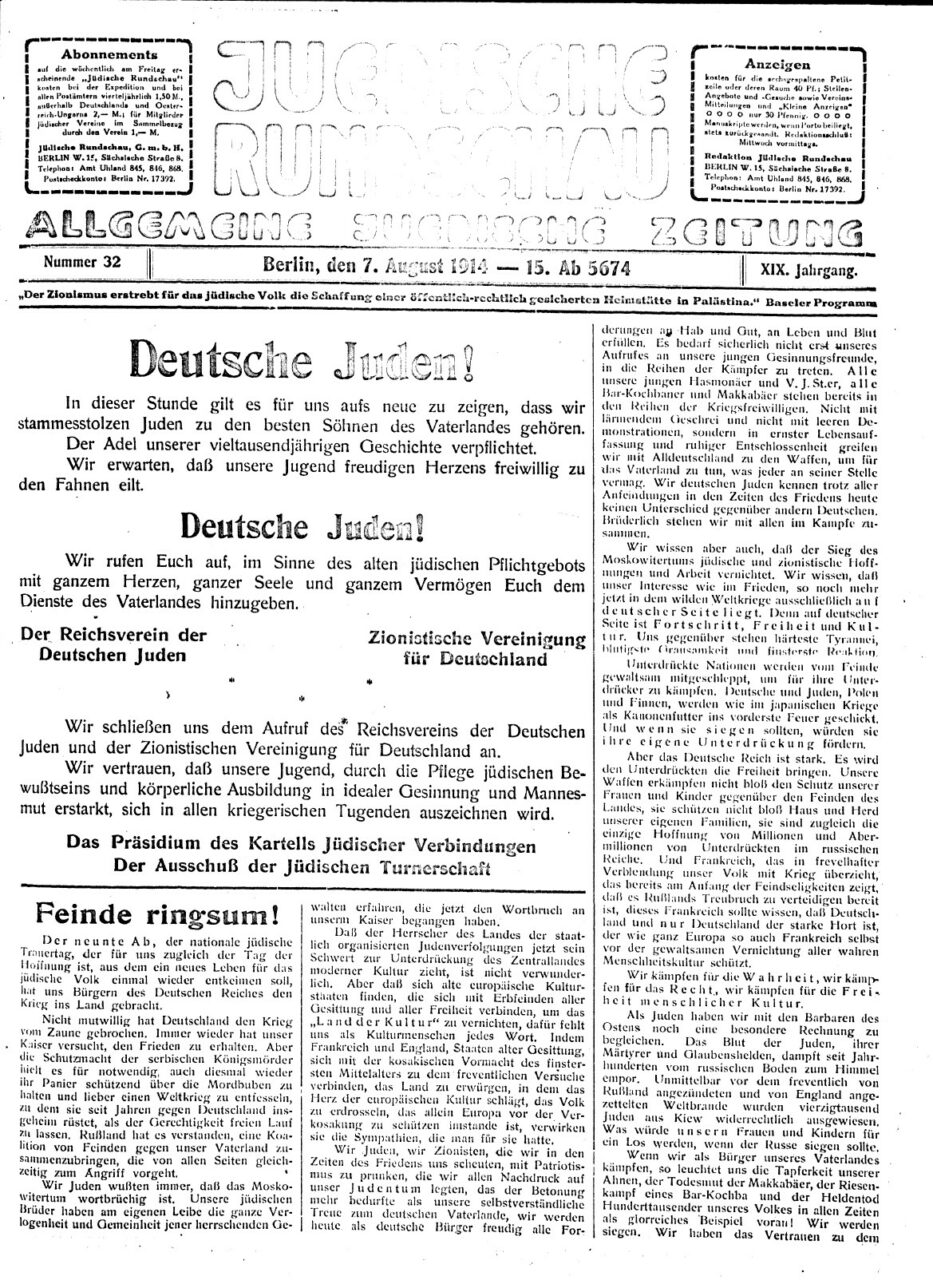
For German Jewry the outbreak of the war marked a historic opportunity to demonstrate its unconditional loyalty towards the Reich. The war set in motion a lively debate on the current and future position of the Jews within the German nation. The Emperor’s proclamation of the Burgfrieden – a civil truce between the political parties and social groups for the duration of the war – raised hopes that antisemitism and discrimination were overcome. Hence, the Jews responded to the war with patriotic enthusiasm and volunteered in large numbers to demonstrate their readiness to make sacrifices for their homeland. Throughout the war more than 100,000 Jewish soldiers served in the German army, and 12,000 lost their lives.
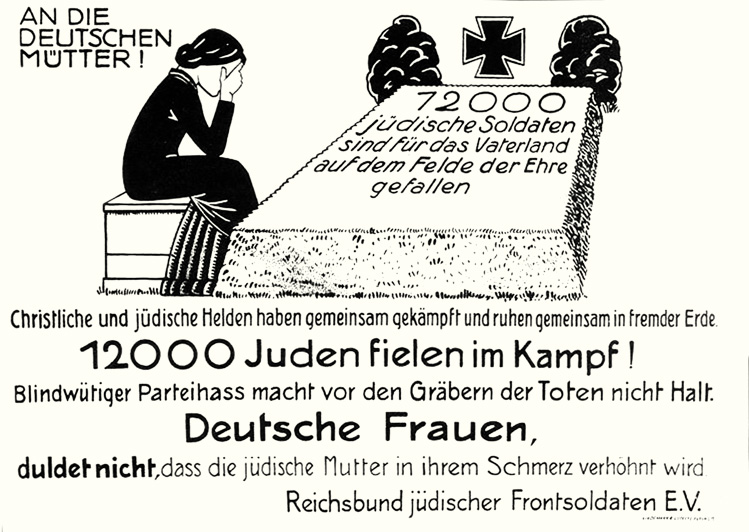
Throughout the war, the Jewish press was the main medium of Jewish self-reflection on the Jews’ position in the German society. Hence, issues of assimilation and acculturation on the one hand, and of Jewish identity on the other, were discussed with particular intensity. The periodicals mirror the hopes, fears, and Jewish every-day experience during the war and reveal the central debates about issues prevalent at that time in the German-Jewish communities.
The initial optimism of the Jews that the war would lead to more integration soon began to wane and gave way to more critical and sobered voices deploring the rise of antisemitism and the rejection of the Jews by German society. In November 1918 the Jewish press recognised that the end of the war would not mean the end of antisemitism. Nonetheless, the papers welcomed the establishment of a republic hoping that democracy at last would end discrimination and lead to Jewish equality. Because the war had put the ‘Jewish question’ – more precisely, the question of a Jewish national home in Palestine – on the international agenda, the papers viewed the Jewish future favourably.
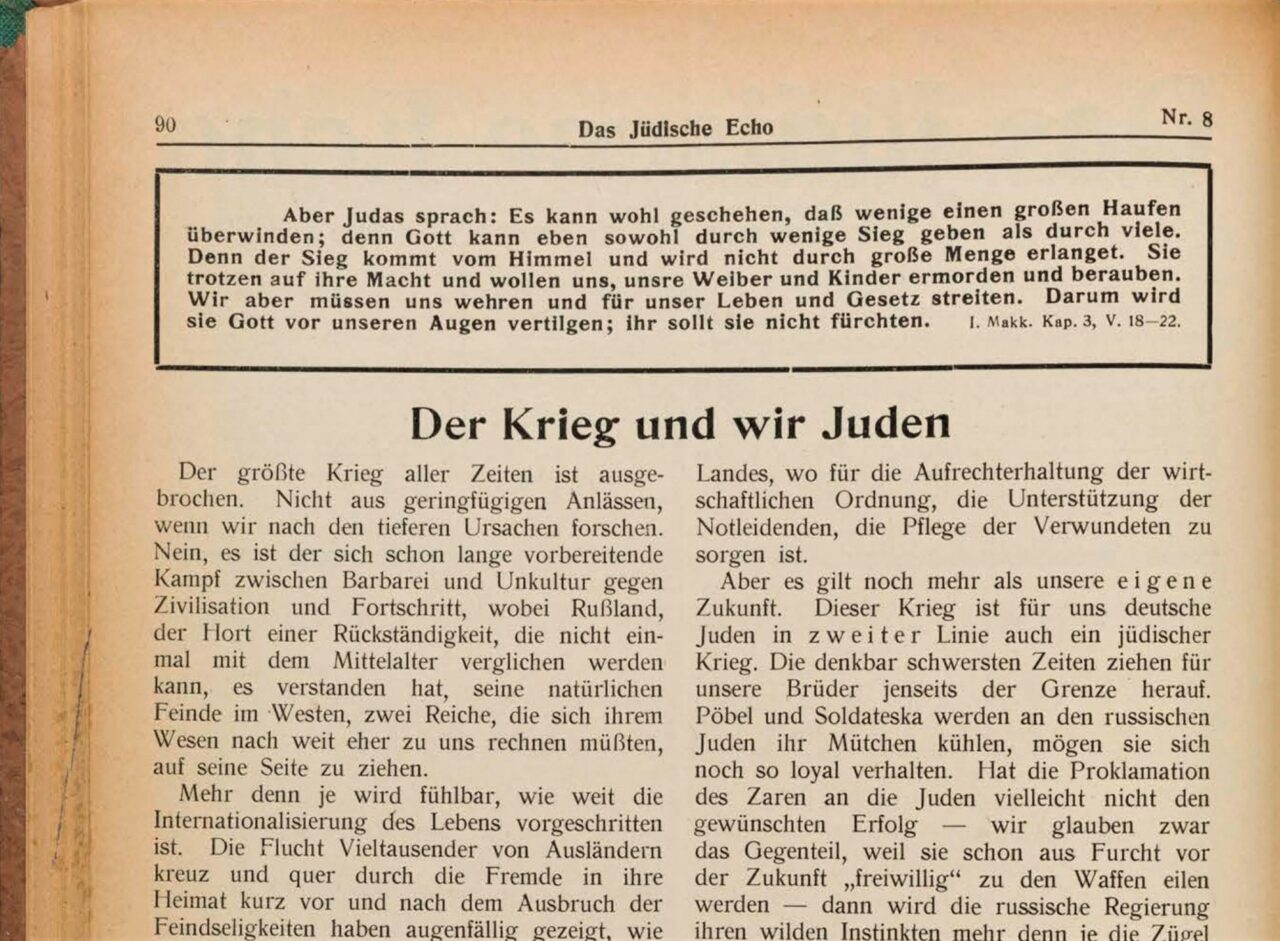
Publications
Seul, Stephanie: “The Jewish Weekly ‘Jüdische Rundschau’ During the First World War.” Diversity Essay Series, Journalism History, (12 September 2022).
Seul, Stephanie: “Die deutsch-jüdische Presse im Ersten Weltkrieg: Stand und Perspektiven der Forschung” [The German-Jewish Press during the First World War: State of the Art and Perspectives for Future Research], in Holger Böning and Susanne Marten-Finnis (eds.), Aufklären, Mahnen und Erzählen. Studien zur deutsch-jüdischen Publizistik und zu deren Erforschung, zum Kampf gegen den Antisemitismus und zur subversiven Kraft des Erzählens. Mit der Edition einer Denkschrift des „Centralvereins deutscher Staatsbürger jüdischen Glaubens e.V.“ zu Friedhofs- und Synagogenschändungen aus dem Jahre 1929. Festschrift für Michael Nagel. Bremen: edition lumière, 2015, pp. 177-198; PDF
Seul, Stephanie: “‘Großer Friedensstifter‘ – ‘Befreiung des russischen Judentums‘ – ‘bewusstes Walten Gottes‘: Deutsch-jüdische Pressediskurse über den Beginn des Ersten Weltkriegs, 1914-1915“ [Discourses of the German-Jewish Press on the Outbreak of the First World War], in Cornelia Rauh, Arnd Reitemeier and Dirk Schumann (eds.), Kriegsbeginn in Norddeutschland. Zur Herausbildung einer ‘Kriegskultur’ 1914/15 in transnationaler Perspektive. Göttingen: Wallstein, 2015, pp. 128-154.